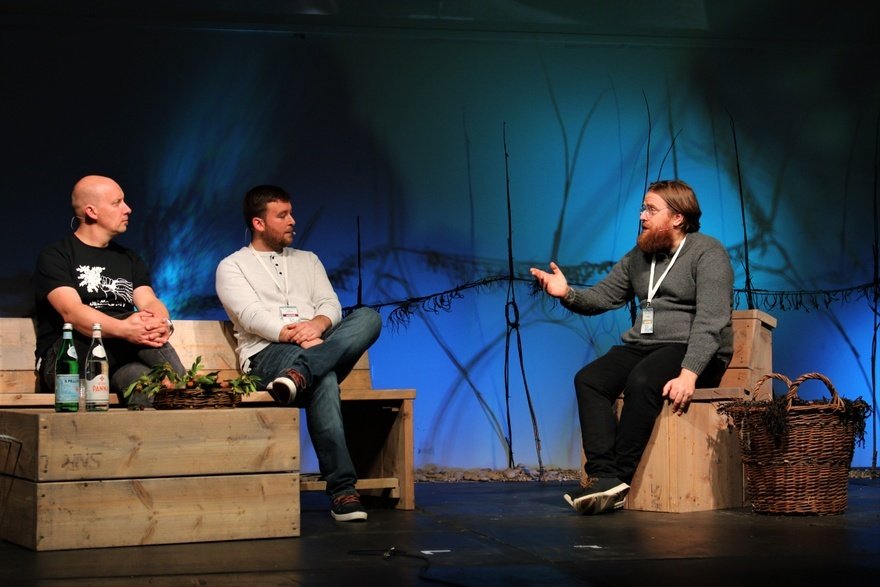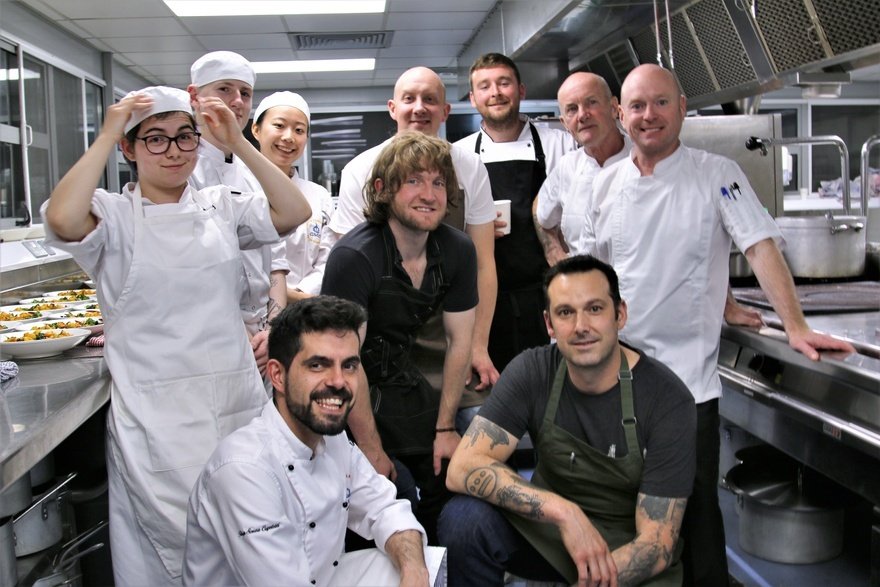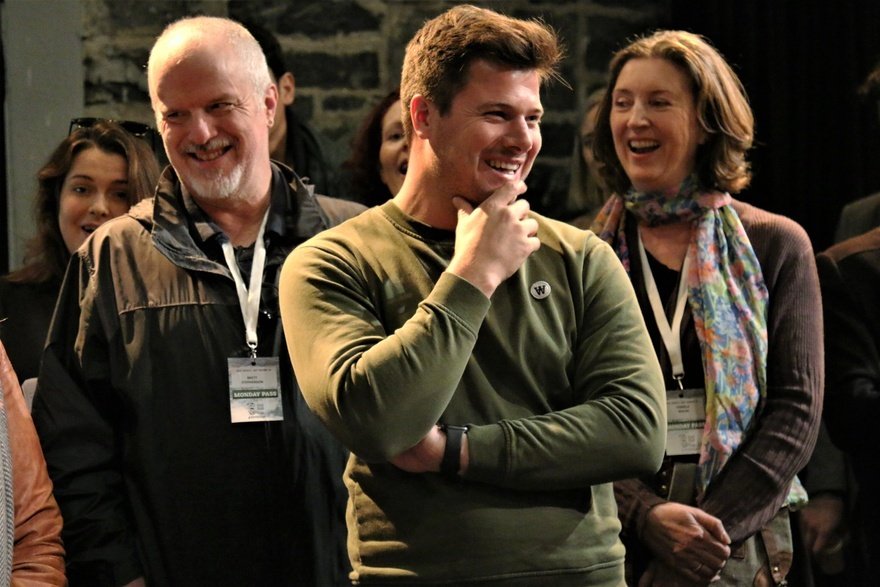Food on the edge: Taste, not waste
What's on your sustainable menu? Japanese knotweed canapés? Or maybe fish eye prawn crackers? Chefs at Food on the Edge, a conference gathering together some of the strongest voices in the global food industry, related some truly inspirational ways of dealing with waste. Andy Lynes reports
For two days in October, Galway on the west coast of Ireland becomes the epicentre of global cuisine. For the past five years, leading chefs, restaurateurs and other industry figures from around the world congregate at the Food on the Edge symposium at the National University of Ireland to deliver and listen to 15-minute talks and hour-long masterclasses.
This year, 600 delegates saw more than 50 international and Irish chefs and food leaders speak on the theme of migration and how it affects food and cooking, people and produce, technology and recipes, techniques and food culture. Previous Food on the Edge symposiums have inspired initiatives related to waste, social gastronomy, education and kitchen culture.
"There's a number of reasons for staging Food on the Edge," says symposium founder and director JP McMahon, chef-patron of Michelin-starred Aniar as well as Cava Bodega and Tartare restaurants, all in Galway. "The first is to bring attention to Ireland as a food destination and to highlight Irish food culture and to even bring about the question of what is Irish food culture. The second is to ask the more global question of what is it like to work in the industry today and what are the things we can do better?"
McMahon was inspired to launch Food on the Edge in 2015 after taking part in a number of international events, including Terroir, Cook it Raw and René Redzepi's MAD symposium.
Although the 2019 line-up included a number of big international names from elite establishments, such as Ben Shewry (Attica, Melbourne), Alex Atala (DOM, São Paulo) and Matt Orlando (Amass, Copenhagen), McMahon also invited chefs such as Dan Giusti, formerly of Noma, and who now runs Brigaid in the US, which trains chefs to deliver wholesome food cooked from scratch in kitchens in schools and colleges.
"Our base is primarily drawing on chefs around the world, but often we add in different industry professionals, whether that's sommeliers or farmers or people involved in the food industry," says McMahon. The range of establishments featured is wide – everything from three-Michelin-starred restaurants to workplace sites and even prisons. "We try and mix it up because when different worlds collide – and they often don't have the chance to – you get very interesting results," he says.
Cash for trash
The issue of sustainability is impinging on every area of life and the pressure is on to initiate change. In the kitchen the challenge is how to source the most sustainable produce, address the problem of waste and eliminate single-use plastic. Many of the speakers at Food on the Edge shared their innovative practices.
Matt Stone, now executive chef at Oakridge winery in the Yarra Valley in Australia, is a leading figure in the sustainability movement, who first collaborated with restaurateur and eco-champion Joost Bakker of the Australian-based Silo café in 2008.
At Bakker's Melbourne restaurant Brothl, Stone created a menu of nutrient-rich broths made from the waste of other restaurants. "We gathered fish brains, crustaceans shells, chicken carcasses and vegetable scraps from some of the best restaurants around Melbourne and the waste was the heart of our food," says Stone. Brothl went on to be the inspiration behind Dan Barber's wastED pop-up events in London and New York.
Douglas McMaster of Silo in London, who worked alongside Stone at the original Silo in Melbourne, has coined the term ‘nu waste' for his approach, which revolves around upcycling: leftover bread is transformed into miso, which McMaster describes as "umami, butterscotch, caramel deliciousness"; ferments are created from vegetable scraps; and fish guts are transformed into fish sauce.
McMaster explains that he has a "weird fascination with invasive species and pests", with crayfish being one of his favourite ingredients. He also eats Japanese knotweed, Britain's most invasive plant species, rather than killing it, likening the flavour to rhubarb. "The fresh young shoots are really tender and juicy, and we stuff them with a sheep's cheese paste and wild garlic for a canapé," he said.
For Matt Orlando and Kim Wejendorp of Amass, Copenhagen, information is a key ingredient in their recipe for sustainability. After calculating the amount of CO2 cartridges they were using at the restaurant, they made the decision to stop using them entirely. "When you eliminate something the first thing people say is, ‘What do you use instead?' and the answer is nothing – we just do things differently."
Orlando and Wejendorp recently calculated that by using only egg yolks for a duck dish, the restaurant was throwing away 423kg of egg whites a year. "When you show that to somebody, that they have this impact on the environment, and then you show them what they can do with that, all of a sudden they want that product. The flavours we're able to pullout of byproducts more often than not outweigh the flavour of the original product."
Josh Niland of Saint Peter, Sydney, and author of The Whole Fish Cookbook is a leading authority of the usage of byproducts. In his talk, Beyond the Fillet, he explained that his fin-to-tail approach to fish cookery means that he achieves a 91% yield from a flat fish, compared to 45% when just using the fillets.
He makes a sort of mortadella from fish milt and has even found a way to make fish eyes delicious: "We blend them into a horrible grey porridge, pass it through a tamis, mix it with tapioca flour, spread it out on a mat, steam it, dry it and deep-fry it, and what we end up with is a type of prawn cracker of eye meat. It brings humour to something so confrontational."
Continue reading
You need to be a premium member to view this. Subscribe from just 99p per week.
Already subscribed? Log In














